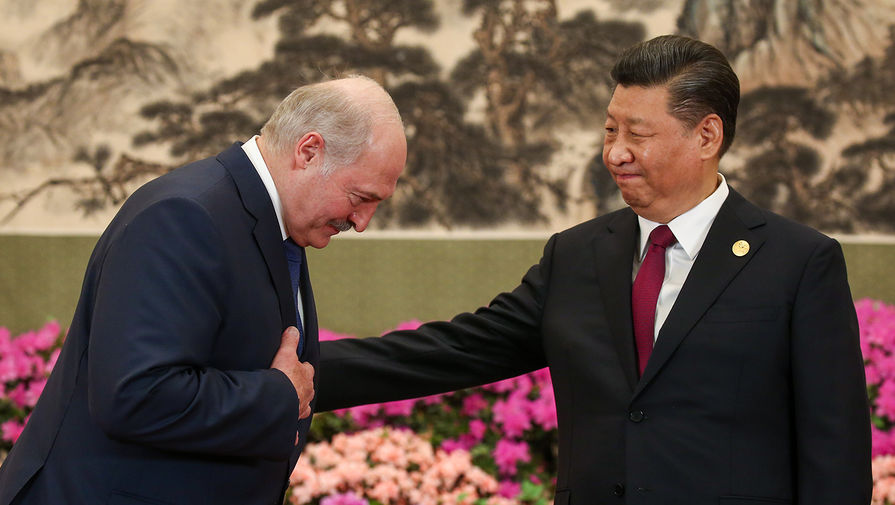The West is imposing new sanctions, and Lukashenka is going on a family tour
 The situation has not changed
The situation has not changed

The West is imposing more sanctions on the Lukashenka regime, tying any easing of the pressure to specific conditions like releasing political prisoners, putting an end to repression, and pulling out of the Russian war against Ukraine. However, Minsk seems uninterested in making such a deal. Instead, Lukashenka is off on a family foreign policy tour to countries in the “distant arc,” including the UAE, China, and Equatorial Guinea. This expansion of regime interests mirrors the well-established Sheiman-Zingman model observed in other African countries.
The US Treasury Department is rolling out additional sanctions against the Belarusian regime, targeting eight Belarusian citizens and 11 enterprises and companies. This underscores Washington’s commitment to holding Lukashenka, his family, and the regime accountable for anti-democratic actions and human rights violations within Belarus and globally. The United States aims to continue investigating the sources of income for the Lukashenka regime, including his so-called personal “wallets,” and entities supporting Russia’s aggressive war in Ukraine. Notably, efforts are directed at those facilitating the movement of children from Ukraine to Belarus and aiding the authoritarian regime.
In a broader context, the United States expresses readiness to discuss changes in its policy toward Belarus, provided certain conditions are met, including the release of all political prisoners, an end to repression against the Belarusian people, and cessation of complicity in Russia’s war against Ukraine. The release of political prisoners is seen as the starting point for further discussions on improving relations between the United States and Belarus. Unfortunately, there has been no indication from the Lukashenka regime of a willingness to negotiate the release of political prisoners.
The UK is also upping the ante, expanding sanctions against Russia and Belarus, imposing restrictions on 25 individuals, including those associated with the Russian drone manufacturer Aeroscan, the Soyuz aerospace engineering center, and the Russian military. Sanctions have been extended to the Belarusian Design Bureau Display due to its supply of products to the Russian military-industrial complex and army. London has additionally announced sanctions against Belarusian functionaries, including representatives of the courts, the prosecutor’s office, and the Investigative Committee.
Moreover, EU countries may be granted the authority to halt gas imports from Russia and Belarus. A draft regulation under consideration would empower EU member states to restrict access to pipeline infrastructure for gas supplies, as well as LNG terminals, to companies from Belarus and Russia. This document might also enable European companies to terminate contracts with Russian suppliers without compensation, citing security reasons.
The Belarusian Ministry of Foreign Affairs responded to the new US sanctions in a customary manner, dismissing them as commonplace and ritual dances.
While Lukashenka remained in the United Arab Emirates with his family and associates after the UN climate summit in Dubai, he engaged in talks with UAE President Mohammed bin Zayed al-Nahyan in a “home, family format” without a clear agenda. Lukashenka’s sons, Viktar and Mikalai, were also present at the dialogue.
On December 3, Lukashenka unexpectedly traveled to China, where he held brief talks with Chinese President Xi Jinping. Discussions revolved around the Ukrainian crisis and, at the Chinese initiative, the implementation of the Great Stone industrial park project, industrial cooperation, cross-border transport simplification, and the promotion of economic, trade, and personnel exchanges. However, Lukashenka primarily focused on projects of personal interest, such as securing Chinese funding for the construction of the Nezhinsky mining and processing plant. The Belarusian authorities aim to restore Chinese financing for the plant’s construction and put it into operation by June 1, 2025. No significant agreements were announced following the visit, which also included Lukashenka meeting with Mikalai’s teachers at Peking University as part of a joint project on China-Belarus cooperation in biotechnology.
Afterward, Lukashenka returned to the UAE for several days, with no information provided by the press service regarding his activities during that time. Traditionally, Lukashenka, his family, and associates use their visits to the UAE for short-term vacations.
Subsequently, Lukashenka embarked on an “official visit” to several African countries, including Equatorial Guinea. There, he held talks with President Teodoro Obiang Nguema Mbasogo, and the parties signed a roadmap covering 15 key areas for the development of cooperation between Belarus and Equatorial Guinea. They were discussing various collaboration projects that include the supply of Belarusian equipment, its maintenance, partnerships in agriculture, healthcare, pharmaceuticals, the sale of medical equipment, and forestry.
This roadmap is set for the period 2024-2026. In the presence of both Lukashenka and Mbasogo, a package of documents aimed at developing cooperation in different fields was signed. During the detailed negotiations, Lukashenka affirmed his commitment to offering comprehensive solutions for the development of Equatorial Guinea. In essence, these agreements closely resemble the model used for expanding into other African countries, like Zimbabwe, led by Viktar Sheyman and Aliaksandr Zingman, who were also involved in the negotiations.
Subscribe to our newsletter




Situation in Belarus
Constitutional referendum: main consequences


 Video
Video
How to count the political prisoners: are the new criteria needed?


 Video
Video
Paternalism In Decline, Belarusian Euroscepticism, And The Influence Of Russia


 Video
Video












